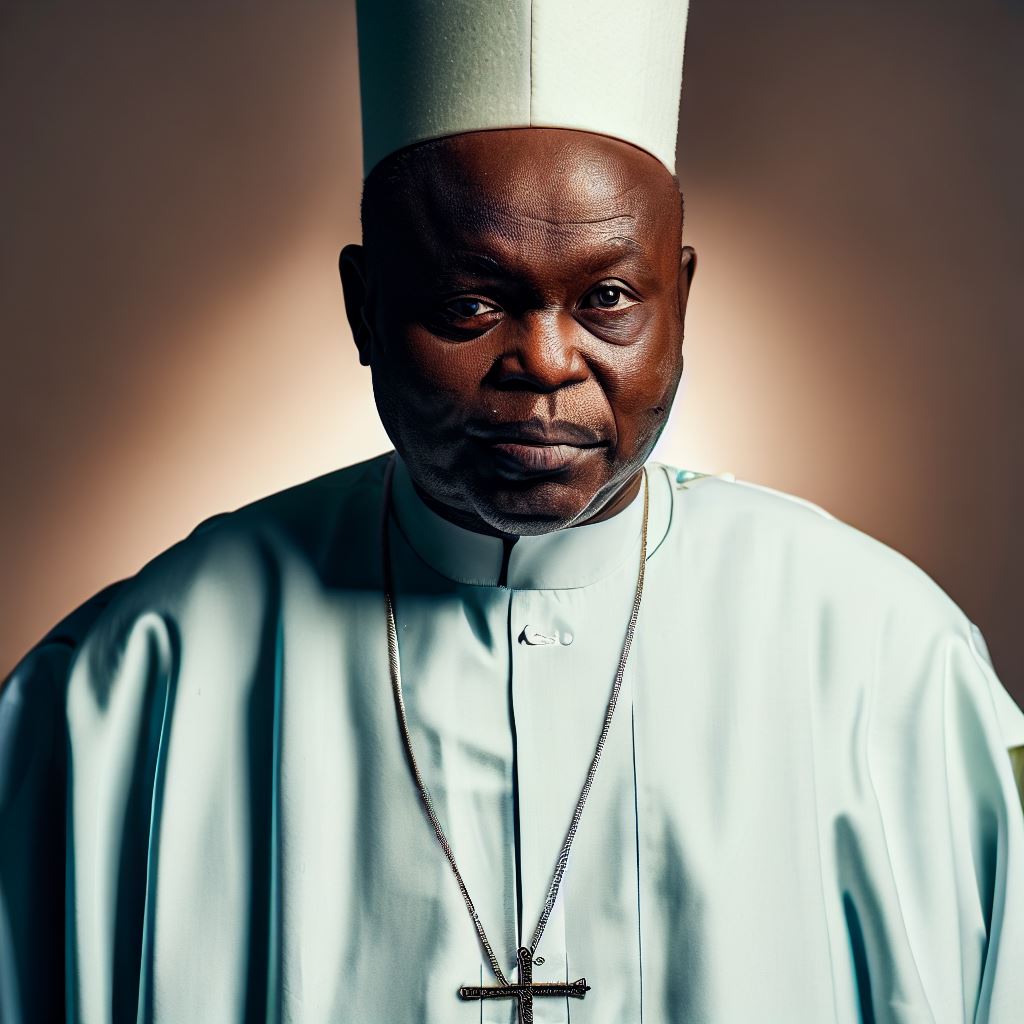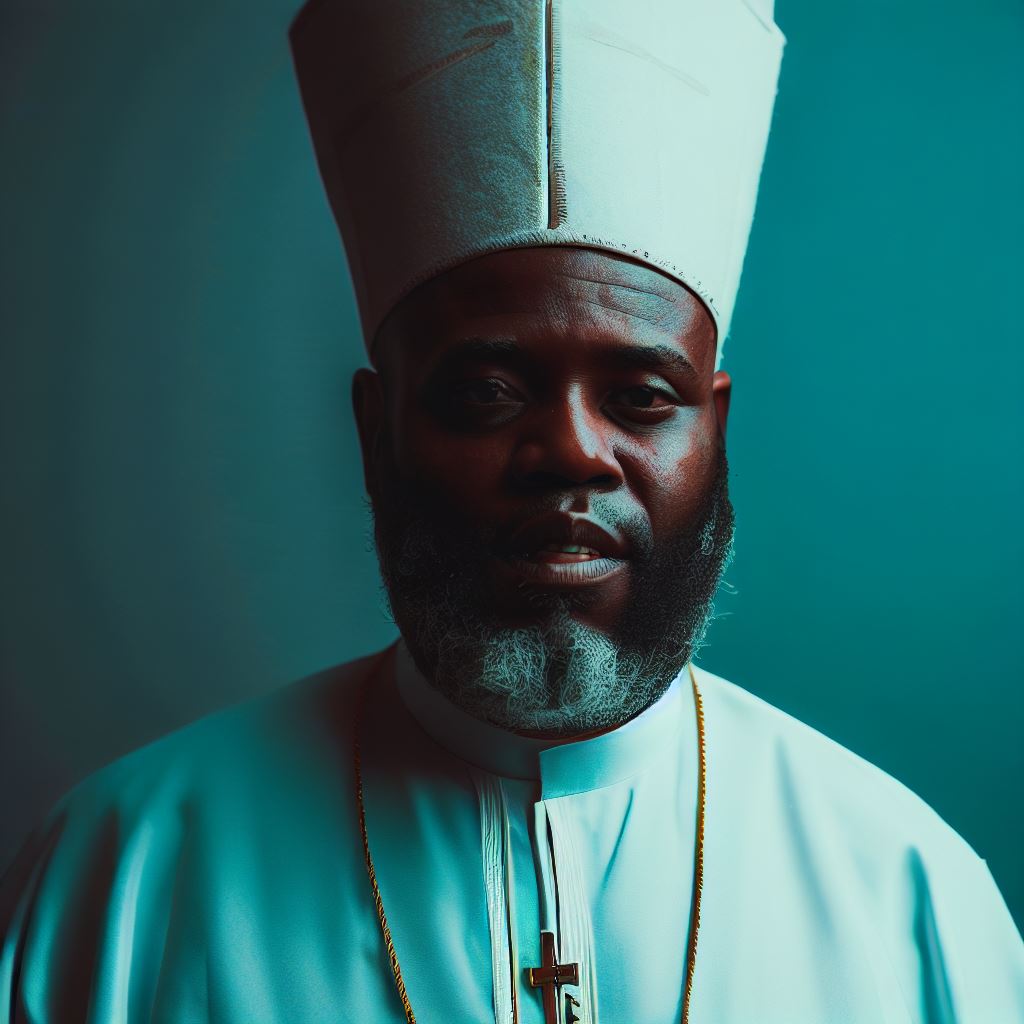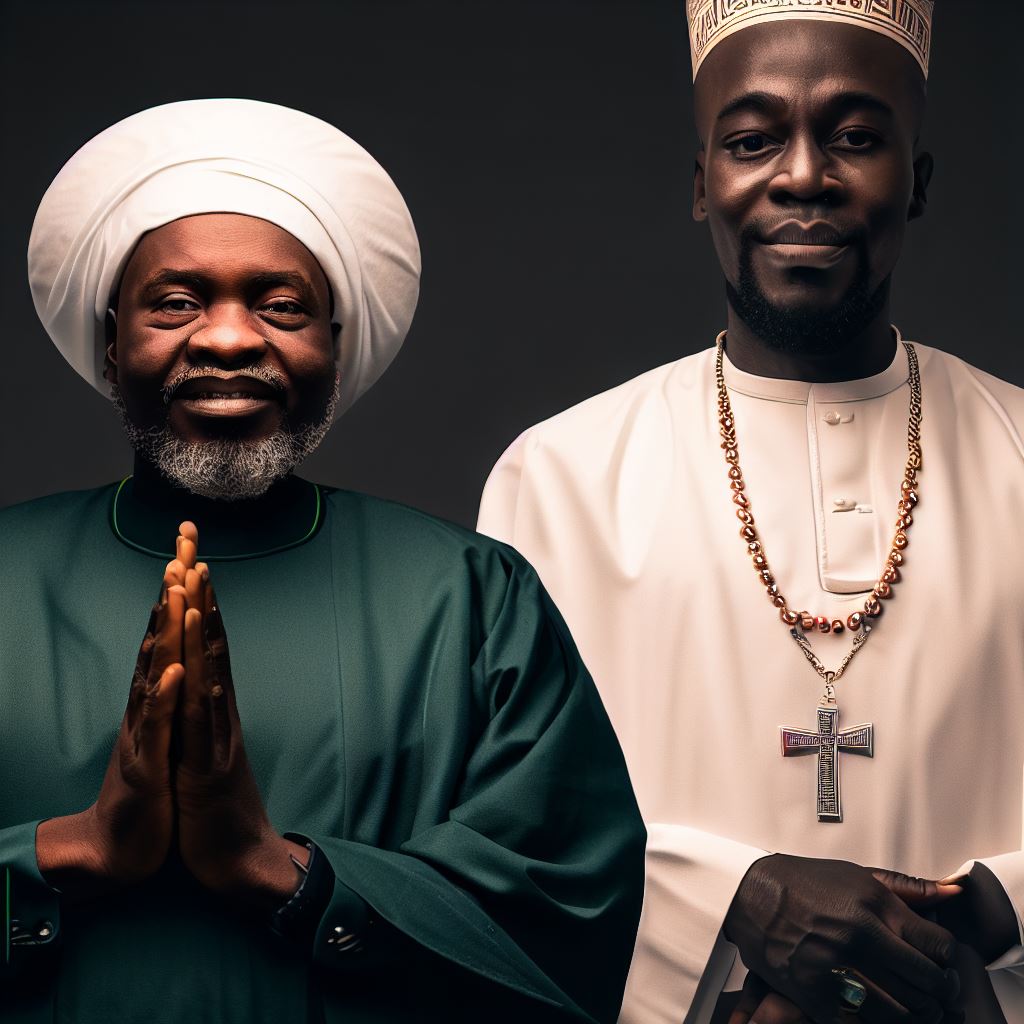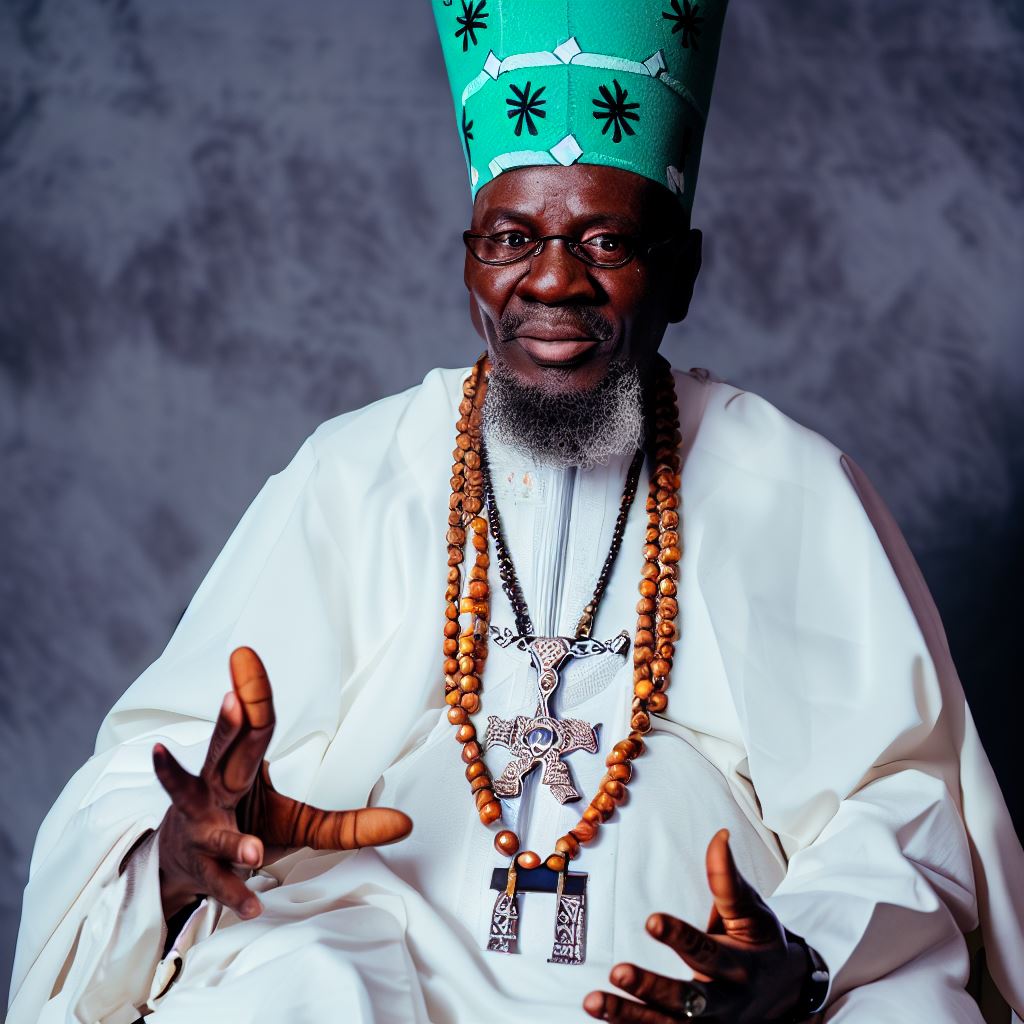Introduction
The challenges faced by Nigeria’s clergy are a vital aspect of the religious landscape in Nigeria that needs exploration.
Understanding these challenges can provide deeper insights into the religious environment in the country.
In Nigeria, the clergy faces numerous challenges that impact their role in society.
These challenges include financial constraints, societal expectations, political pressure, and the rise of false prophets and religious fraud.
Exploring these challenges is crucial because it sheds light on the difficulties faced by religious leaders in Nigeria.
It allows us to understand the complex dynamics at play within the religious landscape and the resilience of the clergy in navigating these obstacles.
By delving into these challenges, we can gain a comprehensive understanding of the religious framework in Nigeria.
This knowledge is crucial for policymakers, academics, and individuals interested in religious studies as it helps in formulating effective strategies and fostering interreligious dialogue.
Moreover, examining the challenges faced by Nigeria’s clergy allows us to appreciate their dedication and commitment to their faith amidst adversity.
Through their struggles, they continue to guide and inspire their congregations, shaping the spiritual fabric of the nation.
Exploring the challenges faced by Nigeria’s clergy is essential for gaining a deeper understanding of the religious landscape in Nigeria.
It enables us to comprehend the complexities and nuances that religious leaders encounter and appreciate their role in shaping society.
Historical Background
In order to understand the challenges faced by Nigeria’s clergy, it is important to delve into the historical background of Christianity in the country.
The people of Nigeria practice Christianity as one of their major religions, reflecting a rich and diverse religious history.
Christianity was introduced to Nigeria by European missionaries in the 19th century during the colonial era.
The missionaries came with the aim of spreading the gospel and converting the indigenous population to Christianity.
They established churches and schools, providing education and healthcare services to the people.
Over time, Christianity gained traction and acceptance among the Nigerians, and gradually the religion spread throughout the country.
The significant growth of Christianity in Nigeria can be attributed to several factors, including the efforts of the clergy in evangelizing and reaching out to the people.
The clergy played a crucial role in the development and expansion of Christianity in Nigeria. They served as leaders, teachers, and spiritual guides to the growing Christian population. They provided pastoral care, conducted religious services, and administered sacraments.
The influence of the clergy in Nigeria cannot be underestimated. They have been at the forefront of social and political movements, advocating for justice, equality, and the well-being of the people.
The clergy has played a significant role in shaping Nigeria’s religious, cultural, and moral landscape.
Challenges Faced by Nigeria’s Clergy
Despite the significant growth and influence of the clergy in Nigeria, they face numerous challenges in their work and ministry. These challenges include:
- Lack of Resources: Many clergy members in Nigeria struggle with limited resources, including financial constraints and inadequate infrastructure.
This hinders their ability to effectively carry out their duties and provide necessary support to their congregations. - Religious Extremism: Nigeria has experienced an upsurge in religious extremism, with groups like Boko Haram targeting Christian communities and clergy members.
This poses a constant threat to the safety and security of the clergy and undermines their ability to freely practice and spread Christianity. - Corruption: Nigeria has been plagued by widespread corruption, which affects various aspects of the society, including the clergy.
Accusations of financial impropriety and unethical practices by some clergy members stain the church’s reputation and erode public trust. - Interreligious Tensions: Nigeria is a multi-religious society, and tensions between different religious groups sometimes arise.
The clergy often find themselves navigating these tensions and working towards promoting interreligious dialogue, understanding, and peace. - Socioeconomic Challenges: Nigeria faces numerous socioeconomic challenges, including poverty, unemployment, and inequality.
Clergy members actively lead in supporting and assisting their congregations, who face significant challenges. - Lack of Training and Education: Some clergy members in Nigeria lack adequate training and theological education.
This limits their ability to effectively carry out their pastoral duties and respond to the spiritual needs of their congregations. - Lack of Government Support: The Nigerian government often fails to provide adequate support and recognition to the clergy.
This includes issues such as tax exemptions for religious organizations, access to land for church construction, and protection of religious freedom.
Despite these challenges, Nigeria’s clergy remains committed to their calling, tirelessly serving their congregations and communities.
Read: The Economic Impact of the Clergy Profession in Nigeria
Lack of Financial Support
Nigeria’s clergy faces numerous challenges, and one major obstacle is the lack of financial support.
In this section, we will delve into the financial difficulties encountered by Nigeria’s clergy and the far-reaching implications it has on their overall wellbeing and effectiveness.
- Financial Challenges Faced by Nigeria’s Clergy: Nigeria’s clergy members often find themselves struggling to secure adequate financial support.
While they dedicate their lives to their religious calling, the reality is that they still need financial resources to sustain themselves and their religious institutions. - Difficulty in Sustaining Churches and Religious Institutions: Limited resources make it incredibly challenging to sustain churches and religious institutions in Nigeria.
From covering utility costs to maintaining church buildings and providing basic amenities, financial constraints hinder the smooth functioning of these religious establishments. - Impact on the Wellbeing of Clergy Members: The lack of financial support significantly affects the overall wellbeing of Nigeria’s clergy.
Without adequate funds, clergy members cannot provide for themselves and their families, leading to emotional distress and a decline in their physical and mental health. - Effect on the Effectiveness of Clergy Members: Financial challenges also hinder the effectiveness of Nigeria’s clergy.
Limited resources mean that clergy members are unable to fully dedicate their time and energy to their pastoral duties.
To make ends meet, they may have to take on extra jobs, dividing their attention and reducing their effectiveness in religious roles.
Factors Contributing to the Lack of Financial Support
- Economic Constraints: Nigeria’s economic situation plays a significant role in the lack of financial support for the clergy.
The country faces a high poverty rate and insufficient job opportunities, making it difficult for congregants to contribute financially to their churches. - Lack of Government Support: The Nigerian government’s limited support for religious institutions exacerbates the financial struggles faced by the clergy.
Inadequate funding for religious programs and a lack of tax exemptions for churches further compounds the problem. - Dependency on Congregational Giving: The financial wellbeing of Nigeria’s clergy heavily relies on congregational giving.
However, economic hardships and a lack of financial literacy among congregants often result in decreased financial contributions, leaving the clergy financially vulnerable.
Strategies to Mitigate Financial Challenges
- Financial Education: Providing financial literacy education to the clergy can empower them to manage their finances more effectively and seek alternative sources of funding for their religious institutions.
- Encouraging Congregational Giving: Encouraging congregants to give generously and promoting a culture of financial commitment within the church can help alleviate some of the financial burdens faced by Nigeria’s clergy.
- Advocacy for Government Support: The clergy can engage in advocacy efforts to lobby for increased government support and favorable policies for religious institutions, such as tax exemptions and grants for church programs.
- Collaboration and Resource Sharing: Strengthening partnerships with other religious organizations and establishing networks for resource sharing can provide the clergy with additional financial support and alleviate some of the financial challenges they face.
The lack of financial support poses significant challenges for Nigeria’s clergy.
Sustaining churches and religious institutions becomes difficult due to limited resources, impacting the overall wellbeing and effectiveness of clergy members.
By addressing the factors contributing to the lack of financial support and implementing proactive strategies, it is possible to alleviate these challenges and create a more sustainable environment for Nigeria’s clergy.
Read: Balancing Tradition and Modernity in Nigeria’s Clergy
Religious Intolerance
Religious Conflict and Intolerance
- Nigeria, with its diverse population, faces frequent instances of religious conflict and intolerance.
- The clergy, as representatives of various religious communities, often bear the brunt of this intolerance.
- Christian leaders, in particular, have faced violence and persecution due to their faith.
- Instances of attacks on churches, kidnappings of clergy members, and destruction of religious properties are not uncommon.
The Persecution of Christian Leaders
- Several prominent Christian leaders in Nigeria have been targets of violence, kidnapping, and even assassination.
- These attacks are often carried out by extremist groups advocating for the imposition of a particular religious ideology.
- Such acts not only threaten the lives of the clergy but also undermine the fabric of religious harmony in the nation.
- The fear created by these incidents hampers the clergy’s ability to serve their congregations and fulfill their religious duties.
The Need for Religious Tolerance
- Religious tolerance is crucial for maintaining peace and stability in Nigeria.
- Both the government and society at large should actively promote and enforce religious tolerance and acceptance.
- The rights of clergy members, regardless of their religious affiliation, must be protected and respected by all.
- Religious freedom is a fundamental human right that should be upheld for everyone, including the clergy.
Protecting Clergy Members’ Rights
- Efforts should be made to strengthen security measures and provide adequate protection to clergy members.
- Law enforcement agencies must take prompt action against individuals or groups involved in violence or persecution against the clergy.
- Interfaith dialogues, peace-building initiatives, and community engagements should be encouraged to foster religious harmony.
- Educating the public about the importance of religious tolerance and the contributions of the clergy can also help create a more inclusive society.
Religious intolerance poses significant challenges for Nigeria’s clergy, especially Christian leaders.
Instances of violence and persecution against them underline the urgent need for religious tolerance and the protection of their rights.
By promoting religious harmony, enforcing laws against religious discrimination, and enhancing security, Nigeria can create a more inclusive and peaceful society for all.
Read: Nigerian Clergy’s Role in Education and Community Care

Corruption
Corruption is a pervasive issue within Nigeria’s religious institutions, tarnishing the reputation of the clergy and undermining their credibility.
The prevalence of corruption within the clergy has had significant negative consequences for both their congregations and the wider society.
Instances of clergy members engaging in unethical practices or misusing church funds are not uncommon. Many have been involved in embezzlement, diverting donations meant for charity and personal enrichment.
This misuse of funds not only betrays the trust of their congregations but also undermines the purpose and mission of religious institutions.
The consequences of corruption within Nigeria’s religious institutions are far-reaching. Firstly, it erodes the trust and credibility of the clergy.
Congregants look to the clergy for moral guidance and leadership, and when members of the clergy engage in corrupt practices, it undermines their authority and credibility.
Additionally, corruption within the clergy exacerbates poverty and inequality. Church funds that are misused could have been used to provide social services to the needy or uplift communities.
Instead, these funds end up lining the pockets of a few corrupt individuals, widening the gap between the rich and the poor.
Corruption also erodes the positive impact that religious institutions can have on society. Churches and mosques are supposed to be places of moral influence and social transformation.
Corruption involving the clergy conveys hypocrisy and moral decay, worsening the reputation of religious institutions.
Furthermore, corruption within religious institutions undermines the effectiveness of anti-corruption efforts in Nigeria.
Religious leaders have the potential to be crucial allies in the fight against corruption, as they can promote values such as integrity and accountability.
However, when the clergy themselves are involved in corruption, it weakens the overall societal commitment to combating corruption.
Read: Ethics and Integrity: Core Values of Nigeria’s Clergy
Challenges Faced by Nigeria’s Clergy: An Insightful Look
Political Interference
In Nigeria, the clergy confront numerous challenges, and one notable obstacle is political interference.
Politicians often meddle in religious affairs, creating difficulties for the clergy and religious institutions.
These challenges arise due to the influence politicians have on religious practices and decision-making processes.
Politicians sometimes manipulate or exploit the clergy for their own interests, using them as pawns in their political games.
They seek to use religious leaders to gain support from their followers and maintain their positions of power.
This exploitation can undermine the integrity and autonomy of the clergy, compromising their ability to serve their religious communities.
Politicians may pressure religious leaders to endorse certain political ideologies or candidates, undermining their impartiality.
Lack of Proper Training and Education
The lack of adequate training and education for aspiring clergy members in Nigeria
Nigeria’s clergy is facing a significant challenge due to the lack of proper training and education.
Many aspiring members of the clergy in Nigeria do not have access to adequate training programs that can equip them with the necessary skills and knowledge to lead religious institutions effectively.
The absence of proper training and education for clergy members is a grave concern. Without the foundational knowledge and skills, these individuals may struggle to fulfill their roles as spiritual leaders.
They may lack the understanding of religious principles, theology, and pastoral care needed to guide their congregations.
This dearth of training ultimately affects the quality of leadership within religious institutions.
Clergy members who are ill-equipped may struggle with interpreting scripture accurately, offering meaningful guidance, and providing pastoral support to their congregants.
This lack of competence can lead to a crisis of faith and a decrease in the effectiveness of religious institutions in Nigeria.
To address this issue, it is crucial to advocate for the improvement of training programs and educational opportunities for the clergy.
Religious institutions, alongside government bodies, should recognize the importance of providing comprehensive training to aspiring clergy members.
This includes both theoretical studies and practical experiences to enhance their leadership abilities.
One way to address this Nigeria Clergy Challenges is by establishing accredited theological schools and seminaries across Nigeria.
These institutions can provide formal education that covers various aspects of theology, pastoral care, counseling, and leadership skills.
By partnering with experienced clergy members and theological scholars, aspiring clergy can learn from seasoned professionals and gain valuable insights.
Another approach to improving clergy training is by promoting mentorship programs within religious institutions.
Conclusion
This blog post has shed light on the main challenges faced by Nigeria’s clergy. These Nigeria Clergy Challenges include financial constraints, lack of support from congregation members, and societal pressures.
It is crucial to address these challenges to ensure the continued growth and contribution of the clergy to Nigerian society.
By providing adequate financial resources and support systems, the clergy can better serve their congregations and communities.
Furthermore, raising awareness about the challenges faced by the clergy can encourage empathy and understanding among the general public.
It is our collective responsibility to support and appreciate the important work of the clergy.
Only by addressing Nigeria Clergy Challenges can we create an environment conducive to the spiritual growth and well-being of both the clergy and the Nigerian society as a whole.
Let us reflect on how we can actively contribute and support the clergy in their noble endeavors. Together, we can make a positive difference in the lives of those who guide and inspire us.




